Sophia - Interview with Robin Proper-Sheppard
by John Clarkson
published: 1 / 2 / 2004
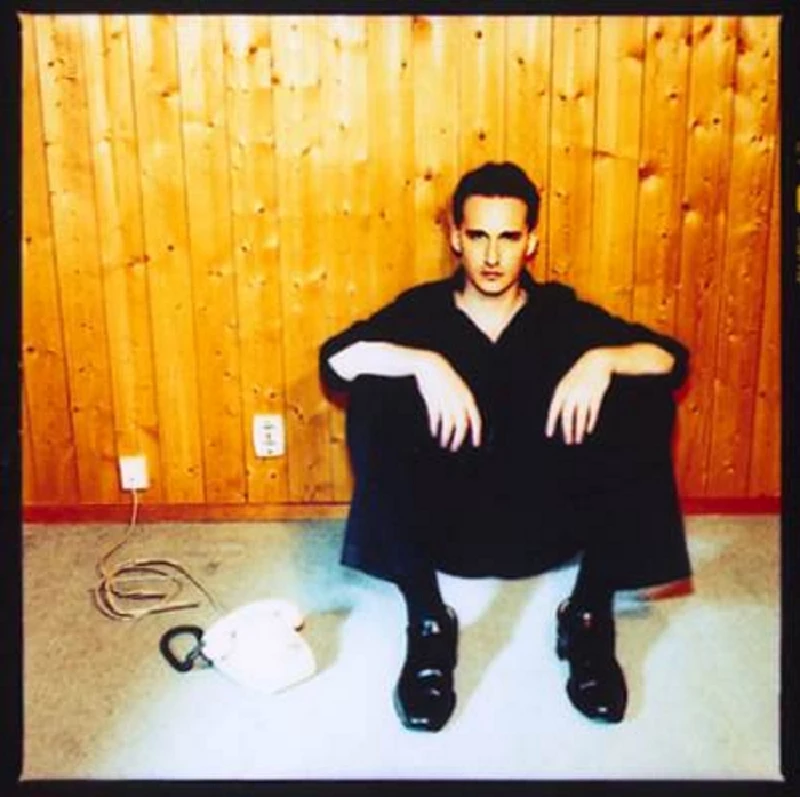
intro
The frontman with Sophia,Robin Proper-Sheppard, talks to John Clarkson about his decision to sign to the City Slang label after years of putting out his records on his own Flower Shop label, and his diverse new record, 'People are Like Seasons'
Robin Proper-Sheppard first came to public attention in the early 90’s as the frontman with cult trio, the God Machine. Proper-Sheppard, who is 36, was born and raised in San Diego, and began singing and playing the guitar in his first band, Society Line, with his friends, bassist Jimmy Fernandez and drummer and pianist Ron Austin, while he was still at High School. The group, a discordant and ferociously intense hardcore rock trio, moved to London, where, changing their name, they eventually signed a deal with Fiction Records, an offshoot of the major label Polydor. The God Machine toured with My Bloody Valentine, and recorded two albums, ‘Scenes from a Second Story’ (1993) and the posthumously released double CD, ‘One Last Laugh in a Place of Dying’ (1995). They however, broke up abruptily when Jimmy Fernandez died suddenly in May 1994 from a brain tumour days after they had finished recording the second album. Proper-Sheppard, devastated at the death of his friend and suffering from depression, remained in London, but, selling his share of the God Machine’s equipment, temporarily abandoned music. Slowly beginning to recuperate, he revitalised first of all Flower Shop Recordings, an independent label which he had formed prior to Fernandez’s death as an averse reaction to major label politics.After over a year in which he did not write any new material, Proper-Sheppard also began performing songs again under the new moniker of Sophia. While remaining essentially a solo project, he drafted in for live and recording purposes some of the members of Elevate and Ligament, two of the other groups on the Flower Shop, and the band released their debut album 'Fixed Water' (FLOW CD 004) in late 1996. Described by one critic at the time as a "lovingly crafted and heartfelt tribute to absent friends", 'Fixed Water' was, like much of the material on the Flower Shop roster at the time, whose other acts included Swervedriver, Slack Dog Ensemble and 18th Dye, a stark and introspective affair. Far removed in style from the God Machine, it drew a debt from country and earned Proper-Sheppard comparisions with Sparklehorse, Smog, Palace and Mazzy Star. Sophia’s second album, ‘The Infinite Circle’, which followed in 1998, was similarly bleak.. By now, as a result of word of mouth and regular touring,Sophia was selling more records than the God Machine had in their lifetime, and had become particulary popular in middle Europe. In 2000 Proper-Sheppard formed a side project, a guitar rock band, the May Queens, which incorporating together elements of the Pixies, Led Zeppelin and Lynard Skynard, and featuring many of the same revolving personnel as Sophia, released a limited ediition, eponymously titled, one-off album. Sophia released their third album, ‘De Nachten’,a live recording, in 2001. Recorded over two nights at a Dutch and Belgium musical festival in Amsterdam and Antwerp, it featured both rew songs and also radical reworkings of some old songs. Broader in sound and focus than both 'Fixed Water' or 'The Infinite Circle', it found Proper-Sheppard working alongside another nine musicians, including a four piece string section. Since then Proper-Sheppard had also gone on to releas r critically-acclaimed albums on the Flower Shop by Copenhagen, Rhonda Harris and the Elysian Fields. Sophia’s fourth and most recent album, ‘People are Like Seasons’, came out in February. The most diverse and possibly challenging album of Proper-Sheppard’s career, it incorporates together for the first time on one record all the previously segregated different sides of his musical character. It maintains some of the introspective character of Sophia’s two early albums (‘Oh My Love’, ‘Swept Back’ and ‘Swore to Myself’), but also finds him experimenting again with strings (‘ ‘I Left You’). There are moments of May Queens-style rock (‘Darkness’), and on it Proper-Sheppard also returns to his hard core roots (‘If A Change is Gonna Come’). Very much a change of direction in all senses, it is Proper-Sheppard’s first other label release since he left Polydor and has come out on the City Slang label, which also has on its roster Lambchop, Calexico and Radio 4. In contrast to Sophia’s previous albums, it also closes on a note of surprising hope with the acoustic ballad, ‘Another Trauma’. Pennyblackmusic spoke to Robin Proper-Sheppard in mid January, a few days before he was due to begin an extensive three month European tour. Taking some time away from the studio, where had been working as a producer and on the mixing of Copenhagen’s second as-yet-untitled album, he talked to us about “People are Like Seasons’. PB : In its early reviews ‘People are Like Seasons’ seems to have baffled some critics. They have perhaps in the past interpreted Sophia as miserable melancholists, but now they are having to work towards a much broader-shouldered, wider interpretation of the band. Would you agree ? RPS : Yes, definitely ! I have only seen a couple of reviews. A review came out in ‘Uncut’ which I thought was really good. I was really happy with that. I have known Carol Clerk, who wrote the review, for a long time and she really understands me as a musician and a songwriter. I find in the UK though especially that it seems that people don’t really give you much of a chance to develop. In Europe though it is another matter. After the two God Machine albums. the May Queens album and the previous three Sophia albums, and now that everything has been combined on this Sophia album, it feels that like the general consensus is that people are really happy to get everything they might want out of me as a songwriter finally on one record. There are strings on it and it's got quiet songs on it so it is not really a rock album, and it's got loud songs on it so it's not an acoustic album.either, and in Britain that has confused some people. I really hope that audiences over here in the UK give it a chance . PB : If people have only heard Sophia and 'Fixed Water' and 'The Intimate Circle', 'it will come perhaps as a surprise to them. If they have heard the God Machine and the May Queens though then it will perhaps be less of a shock. RPS : Yeah ! Absolutely ! It is not like it is forced. It is not not like I am a quiet band trying to do a rock song. Those are all sides of my character. When I went in to record this record, I really wanted to challenge people's perceptions of me. I wanted to challenge myself as well. I was thinking : Can I do this ? Do I feel comfortable basically encompassing everything I appreciate about music, and that has been a part of my life since I basically started to play guitar ? And will I feel comfortable doing it as Sophia ? Much to my surprise. I really do feel very comfortable with it. When you write songs, they take up one meaning for you. When you record them and then produce them as well, you have to look at them from a different direction. You don't relate to them on the same personal level day after day. When the album was finally finished, and I had mastered it, and I was listening back to it, I realised that I had created an album that really for the first time encompasses all the different music that I have ever listened to. Not really perhaps in the sense that you can hear all my different influences, but just in the type of music that I like to create ! I am really very happy with it. PB : ‘People are Like Seasons’ is a very life-affirming record. You have described it on you website as though as being “possibly your darkest album”. Why did you say that ? RPS : It is because I was trying to express things lyrically from a different standpoint. In the past I have made myself the centre of my writing. This time around I tried to include the thoughts and the standpoint of the other people in my life on my songs. At one level that is a very positive personal development, but the outcome of that, by giving these other people a voice not just in the songs, but also in the way I see things, confronts me with their attitude and their feelings towards me. In songs, like 'Swept Back' and 'Swore to Myself' ,the things that other people are saying to me, or the things that I am expressing for them, really make me sad about my own life. Before with Sophia I used my music as a way to deal with what was going on around me and then would let it go, while as now, I am confronted every time I sing these songs with the way that I am as a person now, and the way that I will continue to be as a person unless I make the effort to change. That sounds very kind of self-help, and in a way it is. It is forcing me and it' is confronting me on a daily basis with, Robin, this the way that you are. You know that you hurt people. You know that relationships hurt. You know you can be a better person. I have never really opened up to that before. Before it was everybody else's fault. It was everybody else's problems that was causing me pain. At the end of the day though we cause a lot of our own problems for ourselves. PB : How much do you think that new way of thinking has come about because you're now the father of a 7 year old girl ? RPS : It is absolutely at the core of it all. My relationship with my daughter Hope is really, really good, especially now that she is asking questions about life and the world, and how she deals with people and how people deal with her. People say that having a child is the most amazing thing in the world, and I know why people say that and it is. I knew that it would alter the way I would see the world. You see the world in some ways as a darker place because you want to protect your children from the bad things, but it has also affected me in the sense that it has made me focus on what I think about things, and what is real and what is unreal and what are the causes for things going wrong.. You talk to a child of 5, 6 or 7 and have to explain to them why someone has been mean to them in the playground. You get them to understand that it is not that person is bad, or it is not because that person really dislikes you. It is because of things that are going on with them and that they can't communicate what is going on with them, When you do that it in a way makes you more forgiving of what you have previously seen as something bad. I still see the world as a dark place. I still think love is a travesty (Laughs). I haven’t changed there, but in a lot of ways it has also made me feel a lot more positive about things and about being able to change as well. PB : Do you see it then as your most positive album as well ? RPS : Yes, definitely. ‘People are Like Seasons’ has helped me deal with a lot of very intense and dark feelings about myself, and about me as a person.I think that it is definitely positive that I have been able to say these things about myself. People often ask me if I ever will write a happy song. 'Another Trauma', which closes the album, is a happy song. It is an acceptance that, whatever you go through in life, at the core it is the simple things that make you happy. I now want the simple things. Choosing to call the album 'People are Like Seasons' was another way of me trying to show a little bit of positivity also. People tend to see Sophia as being so dark, that they might interpret that as me saying that, as people are always changing, that you can't count on anybody. I am glad though that people can change. I want people to change and I want people to change my impressions of them. I can be very judgemental and very quick to judge people on base decisions, not with actually knowing them, but because of the way that I see life. The fact that people can change and that I can change though is a very positive thing which is why I called the album that as well. I've changed. I think I have really changed a lot a person . PB : You wrote lots more songs than you actually used for this album. Was it a hard job whittling them down and deciding which songs were going to make the final master of the album ? RPS : I think that structuring an album becomes hard if you want to put a theme on it. If you're just trying to get a collection of songs together, it's not really that difficult choosing which ones will make the final cut.When you want the album to say something, and to represent a certain period in your life, as I did in this case, that is when it gets difficult. We worked on about 20 different songs for this album. That wasn't even all the songs that I had written. I think that at one time I had about 30 songs that I could choose from. There were songs that just didn't contribute to what I was trying to say on this album. I had worked on a couple of electronic songs, and a couple of instrumentals that I really loved, but which we didn’t end up using. One of those instrumentals, 'Airports', was going to be the last song on the album. I really wanted to use that song. For me it was both spiritually and also in the way in which I had conceived it a good ending. When I mastered the album and listened to it though as a whole I realised that it didn't need it, and we ended up using 'Another Trauma' , which until then had been the penultimate track, as the last track instead. Using an instrumental gives you the space to think in one sense, but it doesn’t make you focus on all that an album says. ‘Another Trauma' is such a positive song. I wanted people to leave with this idea that things are different to me now. I am looking at the world differently. It wasn’t easy though coming to the decision not to use ‘Aiports’ and those other songs. PB : What will you do with those songs ? RPS : I am definitely going to use them elsewhere. I really like them, and they will definitely come out. Maybe they will be part of EPs, or maybe they will end up on the next album which I have already started writing. PB : You have been very successful with the Flower Shop. You’re one of the very few musicians that has been able to make a living out of running a label. Yet, despite your past experiences with Fiction and Polydor, you have now signed to another label. Why did you decide to put out ‘People Like Seasons’ on City Slang ? RPS : I was in the process of finishing this album, and I was looking for suggestions with regard to distribution in different countries. I knew that Christof Ellinghaus (City Slang’s founder and owner-Ed) had been building up City Slang over a longer period of time, but in similar ways to I have with the Flower Shop and so I went to him for advice. We started talking about ‘People are Like Seasons’ and, finally after he had asked me for about the third or the fourth time. I sent him a copy and he then offered to put it out. It had got to a point, where after I had been with this record for a little while. I realised I had created something that maybe had the potential to go to the next level, or if not to the next level at least to break out of the core audience that I had with Sophia. There was no way I was really going to be able to do that on my own, and I had never considered doing it with anybody else before, basically because I just couldn’t be bothered. I was making a good living on my own, and I was very happy with it. After talking to Chris and realising that the way they ran things at City Slang and that bands such as Calexico and Lambchop were doing exactly what I was doing, and sitting in their home towns and their home studios before passing them to Kris, who would then put them out as they were, I decided to take up his offer. If it doesn’t work out, I really deep down in the bottom of my heart don’t have a problem with continuing to put records out on the Flower Shop. In Belgium in fact where I have been living off and on for the last few years I have got such a good relationship with all the people there that it is still being released on the Flower Shop there. We are signed to the world with City Slang except for Belgium and that is all because of the friendships that I have with the people there. The core for me is the relationships that I have with people, and Bang, my distributors in Belgium, have been so supportive of the Flower Shop from the very beginning, and from the very first Flower Shop release with Elevate, that we are remaining with them for the Belgium release. Another reason why I decided to sign with City Slang was I wanted to enjoy what I was doing rather than just focusing on the business aspect. In the past I have written the music and then released the music and then tour managed myself and driven the band and I sold my CDs, and, while I still want to do a lot of that, I have now been able to let half of that work go now. I will now be able to spend 50% of the time just enjoying things and having a drink after the gig, rather than worrying if my records are going to be shipped from one place to the next, and if the gig a week down the road has been confirmed, and if have all the posters gone out. I have never regretted or resented having to do any of that, but it is a lot of work, and, now that I have become involved with City Slang, for the first time since leaving Polydor things should be a little bit less intense. Polydor and Fiction wasn’t bad, but it was really a corporate structure. There was no flexibility in it, but with City Slang I will still have that flexibility. They know that I have got the Flower Shop, and, while Sophia will be the main focus for what I am doing for the next six months or next year, I will still have the freedom to do other things around it . Before with Polydor and with Fiction they kind of looked down if I wanted to take a month off from the band. Even if we didn’t have anything planned there was still a problem with it. I just think that it was time for me to give it a try, and I think that City Slang is a great place for me to try it. We will see where it goes. PB : You’re about to do your biggest tour in years RPS : It’s the biggest tour actually ever. The biggest one we ever did before was almost 7 weeks, and that was gruelling, but this one is going to be even serious. From the point we leave until the end of April I don’t have a day off. There was a period at the end of April in which we were going to try to take some time off,but it looks like now we are getting more shows booked in France and Italy, so literally from now there will be maybe a day here, and maybe a day there, but I don’t really have any real time off for the next four or five months. I am looking forward to it immensely though PB : What have you got planned with the Flower Shop in the near future ? Will you be putting it on hold for the next few months while you are away ? RPS : That’s the thing. I don’t really see it as having to go on hold. We’re just finishing off Copenhagen’s new album now. We are looking to get it out in April and are finishing mixing it now and then mastering it the first week in February. I should be able to manage a lot of the Flower Shop myself, but Neil Henderson and Kirsa Wilkenschildt from Copenhagen have offered to take over some of the responsibility fo rit while I am away. On one hand that is very good for them, because it is their label and they can be directly involved in what they are selling, but they are also doing it because we are really good friends and they want to help me out as well. Kirsa at least once a week asks me what she can do for me. We have several forthcoming new releases also. There’s a rock band called Stingray Firecracker. They have been going through some personal changes, but now the songwriter Nick Bergin has got a new band sorted out and they have an album already finished, and we are going to put that out and have also got a single coming out from them as well. There’s another band called the Hissyfits, who are a three piece girl punk rock band. who I have done a single with. It is sitting boxed in my flat,and will probably come out in March. There might be another Rhonda Harris album soon as well. We have probably got another four or five releases in the schedule for the next six months. I think that this year could be quite a good one for the Flower Shop The Flower Shop is the Flower Shop really and, wherever I am, I think it will continue to exist. PB : Last question ! The God Machine even all these years on are very fondly remembered. There are various websites dedicated to them. and there is still quite a lot of publicity about them. Both those albums have been deleted for years. Would you like to see them re-released ? RPS : I would. The reality of that happening now though is minimal. Fiction was sold recently. Chris Parry (Founder of Fiction-Ed) doesn’t own Fiction anymore, and they have disappeared into the vaults.There is still a core cult type of following for the God Machine, especially now with Sophia, but there really isn’t that many new people coming to the God Machine now. It would cost more money for Universal, who have bought Chris’ company, to manufacture 1000 records and to put them in their system than to let it sit in their back catalogues. When Universal goes on to sell that company again those two little God Machine records will, however, have some sort of market value in their assets. Unfortunately it’s a business like that. Their business is owning copyright, and it isn’t really about meeting the demand of people who want to buy the record. I spoke to my lawyer about trying to see if I can get them back or re-released and he said Universal are notorious about not letting anything happen to their music. There might be some way of doing it in the future, if maybe Sophia takes off and sells half a million albums or something like that (Laughs) ,but I think that as long as Sophia is the indie-orientated band that we are, that there is not much chance of that happening. As far as I am concerned I think people should just burn off and make copies for each other. PB : Thank you !
Picture Gallery:-
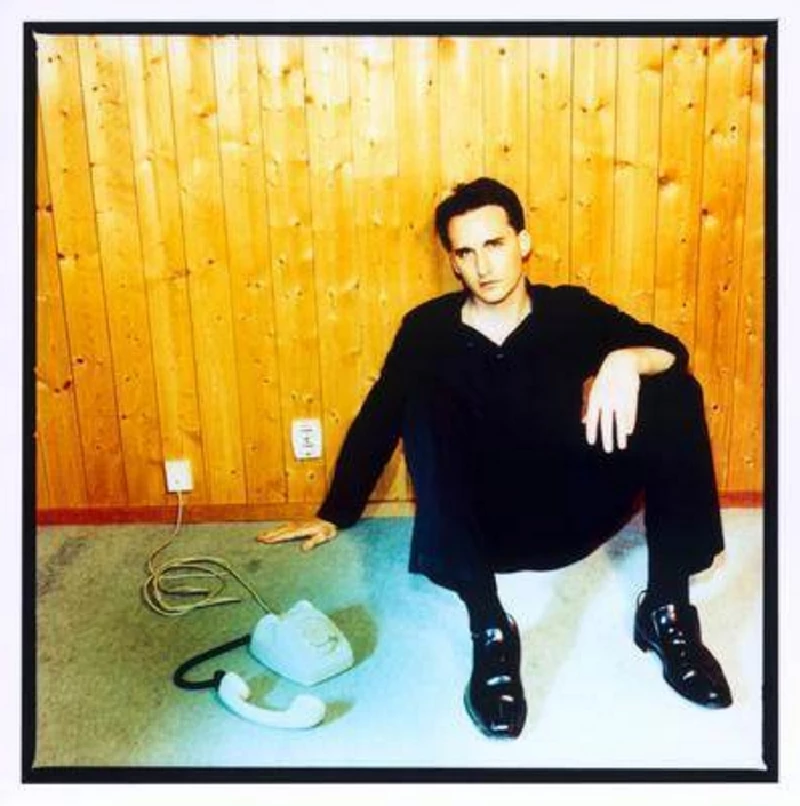
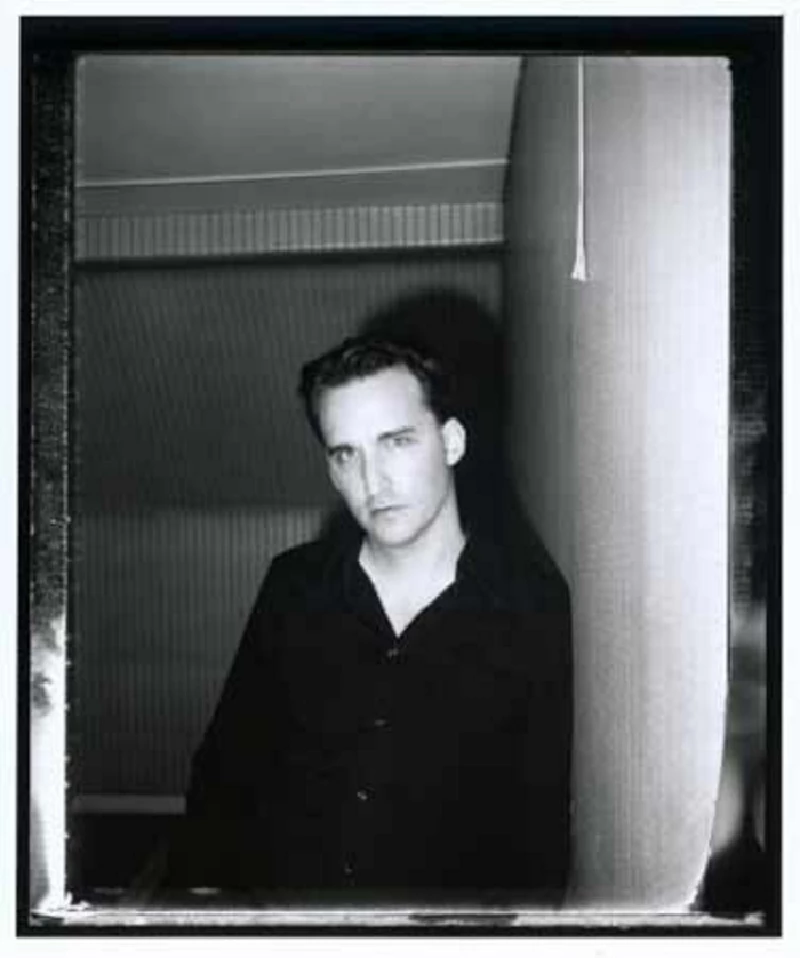
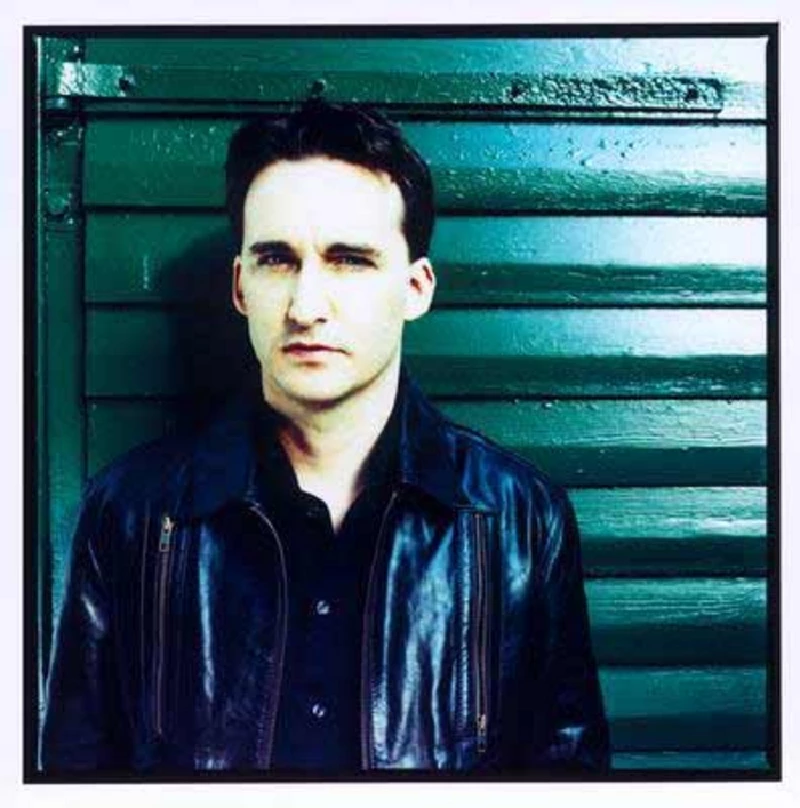
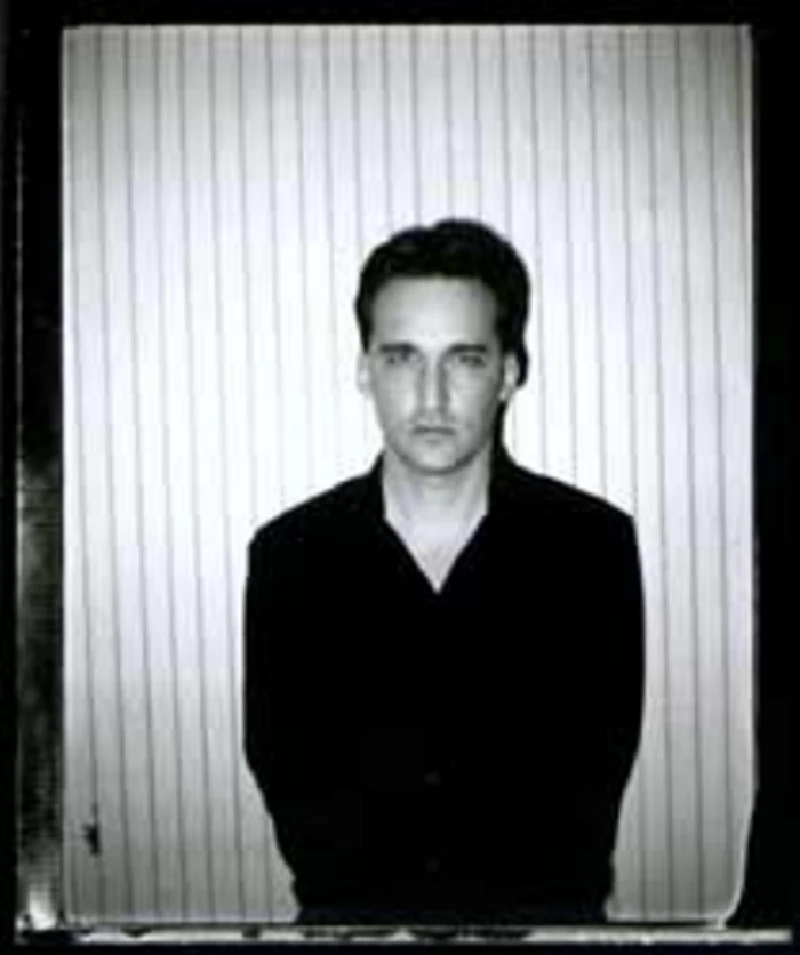
interviews |
|
Interview (2009) |
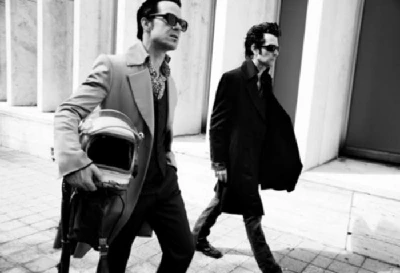
|
| Sarah Maybank finds Jon Spencer to be in aggressive mood when she speaks to him about Heavy Trash's new album, 'Midnight Soul Mood', and how he divides his time between it and his other band, the Blues Explosion |
live reviews |
|
Bush Hall, London, 18/11/2003 |

|
| As a prelude to a European tour and their new album 'People are Like Seasons', both of which are due early next year, Sophia recently played a low-key gig at the London Bush Hall. From uncertain beginnings Jon Rogers finds them on fine form |
reviews |
|
There Are No Goodbyes (2009) |
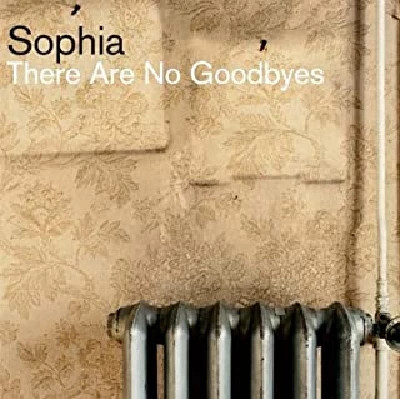
|
| Understated and slow-growing, but ultimately rewarding fifth album from Sophia, which depicts in powerful detail the agony of a relationship having gone sour |
| People Are Like Seasons (2003) |
| Seduction Of Madness (2002) |
| De Nachten (2001) |
most viewed articles
current edition
Carl Ewens - David Bowie 1964 to 1982 On Track: Every Album, Every SongArmory Show - Interview with Richard Jobson
Bathers - Photoscapes 1
Colin Blunstone - Thalia Hall, Chicago, 16/7/2025
Visor Fest - Valencia, Spain, 26/9/2025...27/9/2025
Billie Eilish - O2 Arena, London, 10/7/2025
Robert Forster - Interview
Loft - Interview
John McKay - Interview
Editorial - July 2025
previous editions
Heavenly - P.U.N.K. Girl EPManic Street Preachers - (Gig of a Lifetime) Millennium Stadium, Cardiff, December 1999
Oasis - Oasis, Earl's Court, London, 1995
Beautiful South - Ten Songs That Made Me Love...
Trudie Myerscough-Harris - Interview
Pixies - Ten Songs That Made Me Love...
Prolapse - Interview
Doris Brendel - Interview
Simon Heavisides - Destiny Stopped Screaming: The Life and Times of Adrian Borland
Paul Clerehugh - Interview
most viewed reviews
current edition
Amy Macdonald - Is This What You've Been Waiting For?Sick Man of Europe - The Sick Man of Europe
Alice Cooper - The Revenge of Alice Cooper
Phew, Erika Kobayashi,, Dieter Moebius - Radium Girls
Davey Woodward - Mumbo in the Jumbo
Lucy Spraggan - Other Sides of the Moon
Blueboy - 2
Cynthia Erivo - I Forgive You
Philip Jeays - Victoria
Lapsley - I'm a Hurricane, I'm a Woman In Love
related articles |
|
Black Site: Interview (2015 |
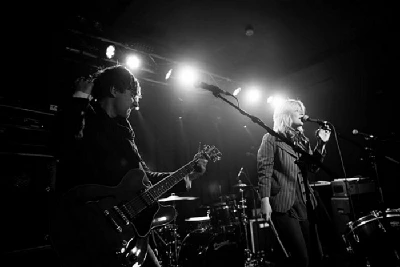
|
| The Black Site are a new raw blues/avant-garde rock duo which features ex-members of Madam and Sophia. Dominic Simpson talks to them about their forthcoming appearance at our next Pennyblackmusic Bands' Night |
Pennyblackmusic Regular Contributors
Adrian Janes
Amanda J. Window
Andrew Twambley
Anthony Dhanendran
Benjamin Howarth
Cila Warncke
Daniel Cressey
Darren Aston
Dastardly
Dave Goodwin
Denzil Watson
Dominic B. Simpson
Eoghan Lyng
Fiona Hutchings
Harry Sherriff
Helen Tipping
Jamie Rowland
John Clarkson
Julie Cruickshank
Kimberly Bright
Lisa Torem
Maarten Schiethart